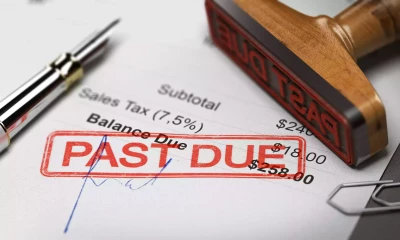Causes and solutions for transport’s bankruptcy boom
September 28, 2023
 The concept of bankruptcy has evolved in recent years. Today, asset litigation is used strategically as a source of value by companies and their unsecured creditors. These creditors now form committees to negotiate the terms of a bankruptcy, complicating the bankruptcy process on a level never seen before.
The concept of bankruptcy has evolved in recent years. Today, asset litigation is used strategically as a source of value by companies and their unsecured creditors. These creditors now form committees to negotiate the terms of a bankruptcy, complicating the bankruptcy process on a level never seen before.
“It’s making the process a little bit messier and more nuanced, and making payouts take even longer,” says Zachary Elrod, Sales Vice President at Allianz Trade North America.
With bankruptcy negotiations taking place in an often-lengthy committee process, smaller companies are in an especially difficult position. Bankruptcy committees will of course seek outcomes that benefit creditors. With less negotiating power, small companies face long wait times and low payouts.
“I’m seeing this becoming a revenue center for a lot of firms rather than a committee that negotiates what’s best, what’s quickest, and what’s cleanest,” Elrod explains.
What conditions are fueling the recent uptick in bankruptcies in the transportation industry? Watch the latest episode of the Stay In Your Lane Podcast to learn more.
These issues are brought into focus by the recent spike in transport industry bankruptcies. Higher interest rates, continuing inflation, and shifting market conditions are among the causes for this troubling trend. Whatever the case may be, many transport companies are seeking a solution to their financial problems.
“For many transportation companies, accounts receivable is the largest asset,” Elrod explains. “I’ll come in and collateralize it, taking it from a promise to get paid to an investment-backed asset.”
Strategies such as this are just one way that Allianz trade assists its customers who find themselves in a difficult financial situation. For Elrod, these situations are increasingly common. Many of his transportation clients are experiencing decreased volume and lower than projected revenue in 2023.
Retail uncertainty is at the heart of the current transport recession. With consumer spending slowing following the Covid-era shopping boom, retailers are cautious of being left with a glut of unsold inventory. If these trends hold, transport volume could remain slow for the foreseeable future. In light of so much uncertainty, what can transport companies do to survive?
“It’s all about finding the right customers while looking out for your bottom line,” suggests Elrod. “Especially as markets compress, due diligence on customers becomes all the more important.”
Working with a firm like Allianz Trade can also help transport companies mitigate risk in a volatile market. Allianz underwrites risk for its customers, guaranteeing transactions at 90%. Partnering with a reliable freight broker that has your back through good markets and bad is another proven strategy for success. Contact the 3PL experts at Triple T Transport to learn more about our full range of transportation services.














